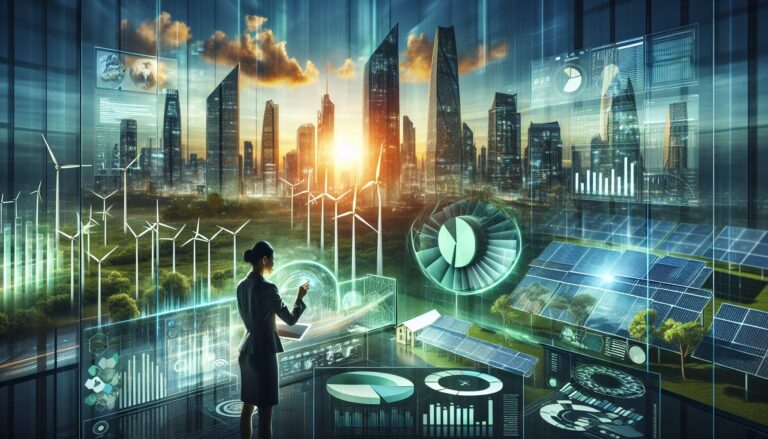Today, we find ourselves at a critical juncture where the fate of our planet is entwined with the fortunes of businesses across the globe. Rapid environmental changes are reshaping the business landscape in unprecedented ways, presenting both challenges and opportunities. In this blog post, we will explore the implications of current environmental trends and their potential future scenarios.
The urgency of addressing environmental issues cannot be overstated. Increasing global temperatures, extreme weather events, and loss of biodiversity are just some of the pressing concerns we face. From the boardrooms of multinational corporations to small businesses, leaders are recognizing the need for sustainability measures. This paradigm shift is driven not only by ethical considerations but also by the realization that adopting environmentally-friendly practices can enhance long-term profitability.
As we delve into the interconnected web of environmental trends, a clear pattern emerges. Consumers are becoming more conscious of their ecological footprint and demanding products and services that align with their values. This shift in consumer behavior has forced businesses to adapt and incorporate sustainable practices into their operations. Forward-thinking companies are embracing renewable energy sources, reducing waste, and investing in eco-friendly technologies. By doing so, they not only meet consumer expectations but also gain a competitive edge in the market.
The implications of these environmental trends extend beyond individual businesses. Governments across the globe are recognizing the need for extensive policy changes to combat climate change. This has resulted in stricter regulations and incentives that reward sustainable practices. Companies that fail to align with these regulations risk legal ramifications and reputational damage. On the other hand, embracing sustainability can lead to financial savings through tax breaks and improved public perception.
Looking to the future, it is evident that businesses that invest in sustainable practices will be better positioned to thrive. As consumers become more environmentally conscious, the demand for sustainable products and services will continue to rise. This represents a tremendous opportunity for businesses to innovate and develop new solutions to address these evolving needs. Companies that prioritize sustainability and adopt a proactive approach will create cost efficiencies, attract top talent, and enhance brand reputation.
However, it is important to acknowledge the challenges that lie ahead. The transition to sustainable practices requires significant financial investments and organizational changes. The burden falls on businesses to strike a delicate balance between profitability and planetary stewardship. Moreover, the global nature of environmental issues necessitates collaboration across industries and countries. Only through collective effort can we effectively mitigate the environmental risks we face.
In conclusion, environmental trends are fundamentally reshaping the future of business. The imperative for sustainable practices presents challenges, but also lucrative opportunities. By embracing renewable energy, reducing waste, and complying with regulations, businesses not only contribute to a healthier planet but also secure long-term success. The journey towards sustainability is not easy, but it is a path we must undertake for the sake of our planet and future generations. Let us break the barriers and forge a new business landscape that thrives while preserving our environment.

